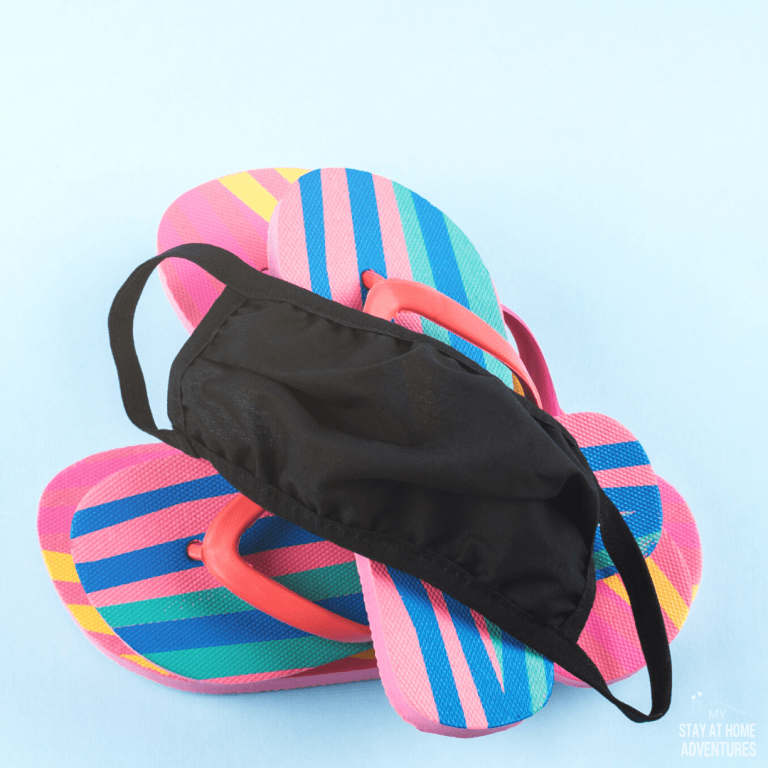10 Ways To Save And Manage Money On a Low Income
This post may contain affiliate links which might earn us money. Please read my Disclosure and Privacy policies hereOne of the most important things to know about living on a low income is that you can still live a happy and fulfilling life.
There are many ways to save and manage money when you have less coming in, including budgeting, meal planning, avoiding debt, saving for emergencies, and more.
In this post, we will discuss 10 tips that can help people with lower incomes make their dollars go further.
Let's talk about how we save and manage money on a low income and how it is possible to do it.
Yes, you can save and manage your money, and all you have to do is keep on reading to learn how.
It’s difficult to think that someday you will save for a rainy day when you can’t seem to get ahead financially.
We don’t make enough money; our finances need some help.
The thought of saving and managing our money seems like something that will never happen.
The good news is that saving and managing money on a low income is possible.
Many people do it and live comfortably; you can too.
Now before we continue let’s make one point clear.
We are not talking about poverty; we are talking about having a low income. Before you go down to the comments and make some ignorant statements, you need to understand that there is a big difference in what I’m about to say.
Another fact is that having a low income that may seem high to you might be considered low depending on where you live in the United States.
Now back to the article.
It takes time and a reality check to realize that we can save and manage our money, no matter the income.
Check out these money articles:
- 4 Things You Shouldn't Do With Your Federal Tax Refund
- 8 Tips To Help Save Money When Money Is the Last Thing On Our Minds
- Are you following these 5 personal financial rules?
If you are wondering how you can save money and manage your money, I got some helpful tips for you.
Many years ago when I was a single mom who was having such a hard time saving and managing my money, I decided that I needed to open a savings account and have a small amount set aside from my primary account.
During that time I had a broke mindset and just couldn’t seem to get my finances together. I knew this and I wanted to make a change, so I started small.
I got paid every two weeks and every Friday, I would transfer $20 into this savings account. It wasn’t much, but it worked. I started to save money little by little.
After years of trial and error, I was able to learn how to manage my money. Finally, the sad part was that I was making WAY more money all those years ago, and yet, I was broke.
I thought that by making more money, I wouldn’t be broke, and that just wasn’t true.
Learning to save and manage your finances is possible and can be done regardless of income. I was still broke when I was making good money years ago; now that we make much less money, we are still able to save a lot of money and manage it correctly.
It IS possible to save and manage money, regardless of income.

How To Save And Manage Money On A Tight Budget
Create a budget
The first tip is budgeting. It's important to keep an accurate record of how much you earn each month as well as all your spending, so you'll know where it goes.
There are many apps available like Mint, or You Need A Budget (YNAB) which automate this process by categorizing every purchase automatically with just a few clicks – saving time and minimizing the risk of forgetting something in your monthly statement expense report!
Why is budgeting important when you are in a low-income situation?
It's crucial to have a clear plan of where you are spending your money and how much is coming in. This will help you save time when figuring out what needs to be cut back on, saving more money overall!
What type of budgeting should you follow if you are on a low income?
A zero-sum budget, which means that you are spending the same amount each month. This may seem like it will be difficult to track your finances and make sure everything is accurate, but this type of budget makes for a simpler financial plan with no surprises!
What should you do if your income changes?
Let say one parent became unemployed or lost their job on top of being in debt – then they would need to create an emergency fund before starting any new monthly expenditures.
How can I avoid mistakes when sticking strictly to my low-income budget?
You can avoid mistakes when sticking to a strict low-income budget by being disciplined and not spending any more money than what you have.
Check out these posts:
- Why People Pay More Without an Emergency Fund
- 3 Reasons to Help You Budget Without Struggling
- 60+ Fun Ideas to Make an Extra $1000 This Month
- 7 of The Best Pantry Essentials for a Budget
Meal Planning
One way to also help you save and manage your money is by meal planning. Creating a meal plan is a great way to save money and plan for the week ahead.
Start by making a list of what you have in your fridge or pantry. Write down anything that can make up at least one recipe, such as canned beans, potatoes, fresh vegetables – even things like pasta sauce (if you don't want to take the time to cook any meat).
Live below your means
No matter your income, it is always important to live below your means. This will allow you to have a savings account as well.
One way to live below your means is by buying cheaper products and clothes that are not name-brand but still function the same. You can also save money on eating out or ordering food by cooking at home more often than not.
It's important for people living with low incomes to be disciplined about how they spend their hard-earned dollars because it may seem like there is never enough cash flow coming in each month – especially if you're working two jobs to make ends meet!
When saving money on a limited income budget, the key thing is being smart about what you buy and creating a realistic spending plan for yourself based on what kind of income you are earning.
Write everything down
One way to help you save money and manage money is to write everything down, and this includes keeping track of your expenses from day-to-day.
It can be challenging to keep up with how much you're spending when the money is coming in sporadically. Still, if you write it down as soon as you spend any amount of cash, then at least you'll have a better idea about how much dead weight there may be leftover each month and what kind of budgeting might need to happen for your finances not to get out of control.
Regardless of whether or not this has been something that has already happened or hasn't yet, writing everything down will help make financial planning easier and allow people living on low incomes an opportunity to save more than they were before by being disciplined with their purchasing habits.
Always be honest
When it comes to your finances, honestly is everything. When you are creating your budget and seeing where your money is going, you might realize that you are responsible for your finances.
Meaning the majority of the time, the way you spend your money is affecting your finances.
If you can't be honest with yourself then it's going to be impossible.
The truth is that your lifestyle will have to change. You will have to live on a smaller budget than you are used to.
It doesn't mean that you can't treat yourself every once in a while, but it does mean that most of your money is going towards necessities and what's most important for survival.
This could be food, shelter or clothing- not luxuries like cable TV or alcohol.
We think we need more than we actually do when it comes to our finances, so if you take an honest look at where your money goes, then you'll see how little some people really need to survive with dignity and respectability.
Avoid using credit cards or borrowing money
You want to break this credit card cycle as soon as possible. Let's be clear for a minute; credit cards are not emergency funds. They are not!
If you can’t pay your credit cards on time, then you have to stop using them until you get your financial situation under control.
Don't add to your financial stress by growing your credit card debt. Avoid using credit cards or asking for money and start using the next tip.
Stick to a cash-only budget
One way to help you stay on a budget and save money is to you a cash-only budget. A cash budget is when you only spend the cash that you actually have on hand. The idea is to avoid using credit cards, debit cards, or checks and use a singular form of currency.
You can also set up an account with your bank for your personal budgeting needs if this seems difficult initially since it will be easier than trying to track all purchases in your head as they happen.
Sticking to a cash-only budget means spending less money because there are no interest charges when paying in cash and being able to see where every dollar goes so that you know how much of what's left over after bills have been spent on unnecessary items like food or entertainment. This way, if something unforeseen happens, you will have the cash budget for it.
Take any extra money you save and put it away
There are so many ways you can make extra cash on the side regardless of income.
Do not spend any money you save, just put it away. If you use coupons and you save money, put it away and save it. This is the beginning of how you start saving money.
Below are rebate apps that will help you save and make money:
You didn’t use any money-earning apps when you went shopping. Apps such as:
- Ibotta
- Checkout51
- Shopkick
- Fetch Rewards (use code DK24W to earn 2,000 points)
You can also use these companies to earn gift cards for your favorite stores.
You can also try these online survey companies too:
- Opinion Outpost
- Inbox Dollars
- Inbox Dollar – iOS
- Nielsen Computer & Mobile – US
- PineCone – Male
- Opinions Network Surveys
- E-Poll Survey – ages 13 to 24
- My Points
Sell unwanted items
If you sell items that you no longer need, either save that money or pay your debt with it.
Reduce your house bills
Find ways to save on your utilities to help you reduce your monthly bills. Take that money saved and put it away.
- Smart Ways To Save On Household Costs
- How to Reduce Your Cable Bill
- How To Save Money On Your Electric Bill
Find ways to make some extra money on the side
The possibilities of making some extra money are endless. From using Swagbucks, to earning gift cards, to doing online surveys.
With these tips, you can’t fail to save and manage your money the correct way. Always remember that you have to do what works for you financially. Now, the harder you work to achieve your financial goals, the more successful you will be.
Always take a positive outlook and have the responsibility to continue handling your finances the responsible way. It doesn’t matter how low or big your income is. How you manage it, is the key to success.







A couple of things to add to this list:
1. Choose alternative/generic brands over name brands. The higher cost for name brand items usually goes to help boost their marketing budget anyways. The quality of the product is typically the same with the generic brand, so if you are trying to save be wise and go for the generic brand when possible.
2. Focus on your grocery bill since buying food is often one of your highest monthly expenses. Avoid the temptation of that candy bar at the checkout stand. Freeze perishable foods and meats so you don’t waste what you buy and end up re-buying a week later. Simple things like this will help lower your grocery bill.
3. Cut back on the things you never use. Maybe you don’t have the time to watch television anymore…get rid of cable! Going along with your point about selling unwanted items, have a garage sale or sell items on eBay that you don’t use anymore. Haven’t touched that bread maker in two years? Sell it!
Once you find ways to save, make sure those savings are tucked away in an interest account.
Thank you Robert for these amazing tips! You are correct on store brands. If consumers will turn the bottles and look at the company that makes them they will see that its a well known company. Thank you for stopping by.
In these Blog Very Nicely written about how we save our low Income, 10 different ways given such a nice Blog. Should Have to be writing that kind of blogs always. I can say that blog should more easy access to peoples for getting information & implement in lifes. I Appreciated.